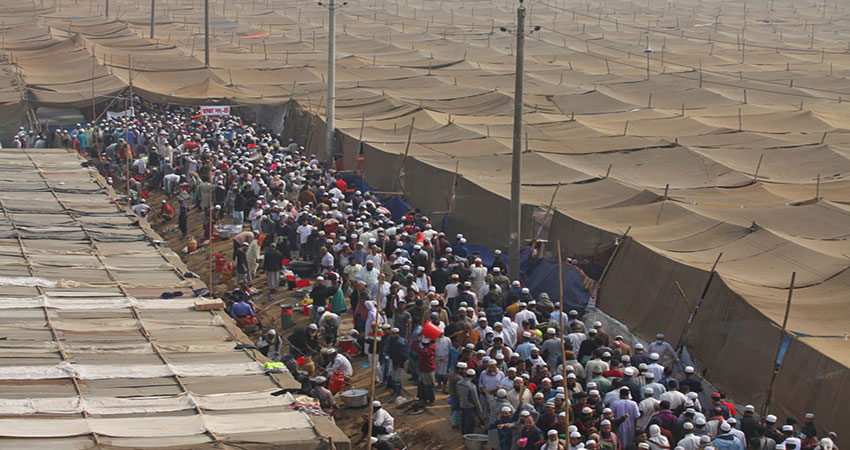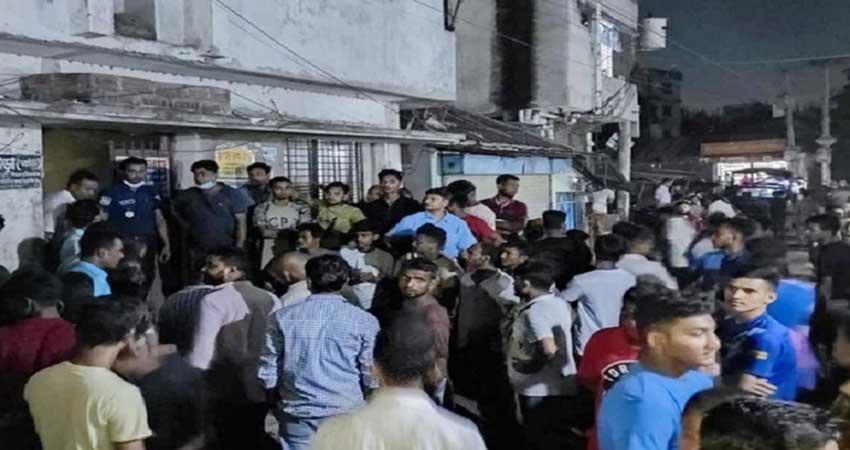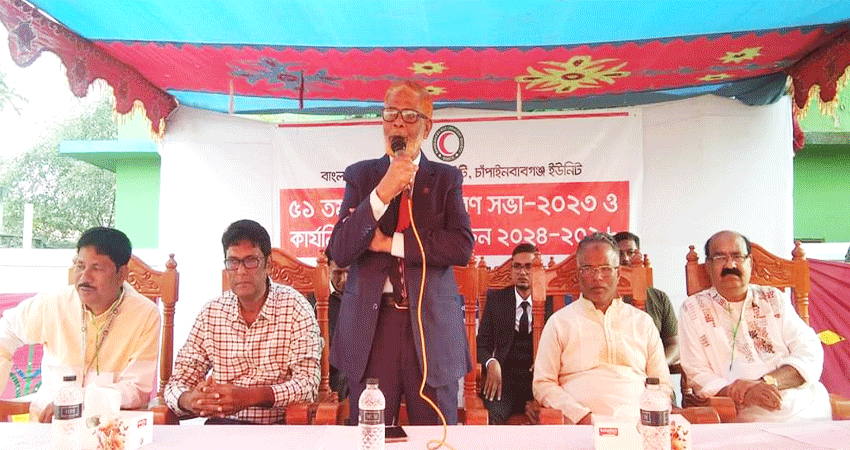The first phase of Bishwa Ijtema, one of the biggest congregations of Muslims in the world, in Tongi is continuing for the second day today (January 14, 2023) — drawing devotees in the lakhs.
The three-day congregation began on the bank of the Turag river after Fajr prayers on Friday with sermons delivered by noted Islamic scholar Maulana Ziaul Haque of Pakistan.
Several lakhs of Muslim devotees, both from home and abroad, are converging at the venue and attending the prayers — reciting the names of Allah and hearing the sermons.
Maulana Khurshidul Haque of Pakistan delivered sermons after Fajr prayers and Maulana Ibrahim Deula of India also delivered sermons in the morning.
Maulana Iftar Zaman will deliver sermons in English.
Devotees from different parts of the country are still coming to the Ijtema venue by buses, trucks, boats and on foot.
The first phase of Ijtema will end tomorrow (Sunday) with Akheri Munajat (final prayers).
Ijtema is being held in two phases from 2012 to ease accommodation issues.
The second phase of Ijtema is scheduled to be held on January 20-22 at the same place.
Meanwhile, six devotees died in separate incidents at the Ijtema venue on Thursday, Friday and today.
A mass wedding ceremony will be held today at the ground after Asr prayers.
Gazipur Metropolitan Police Commissioner Mollah Nazrul Islam said additional police personnel have been deployed in and around the Ijtema venue to ensure the security of the devotees. The venue has been brought under closed-circuit television (CCTV) camera surveillance.
Besides, thousands of volunteers are working round the clock to make sure the event runs smoothly.
Several health centres have been set up at different parts of the venue along with beds and almost all first aid and other treatment facilities with doctors doing round-the-clock duties at each centre.
Special measures have also been taken to ensure uninterrupted electricity during the three-day Ijtema.
Tabligh Jamaat has been organising the congregation at the Tongi venue since 1967. In 2011, it divided Ijtema into two phases to accommodate a large number of attendees.



















